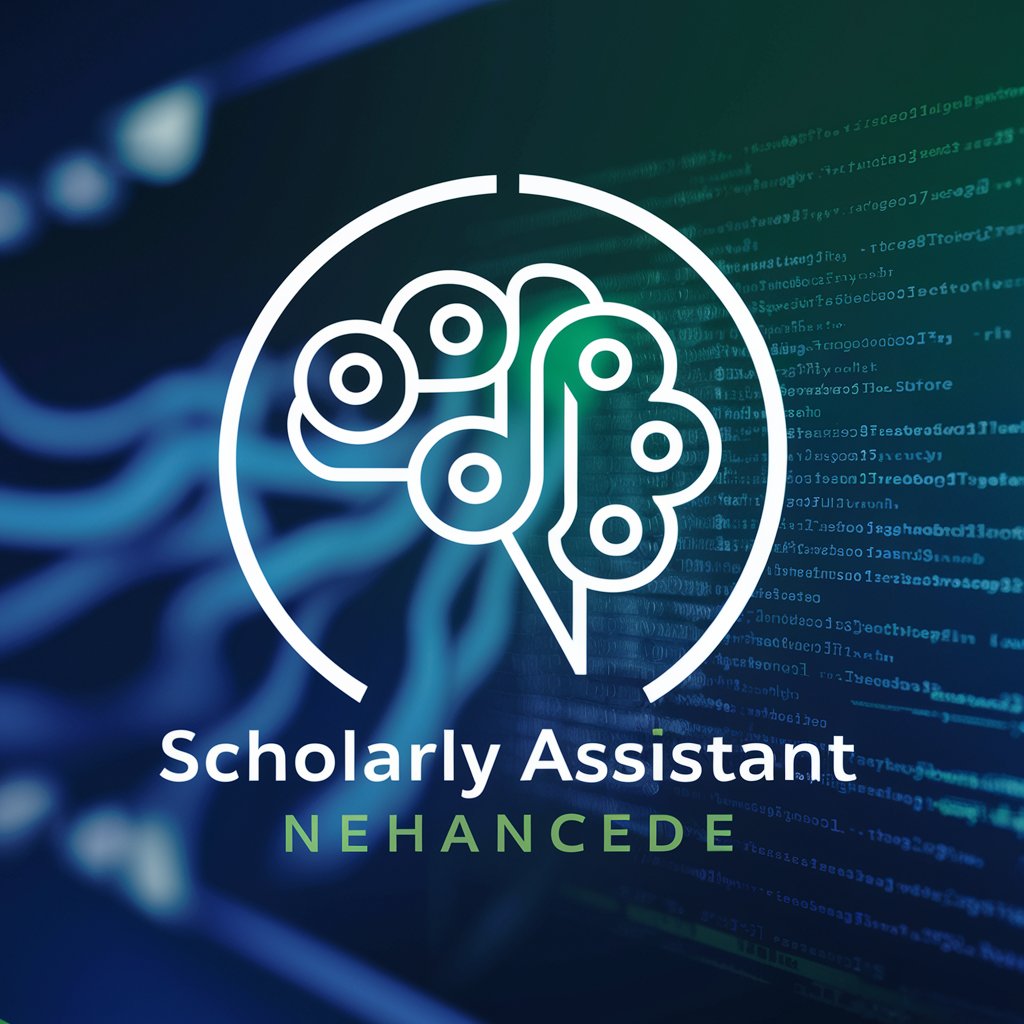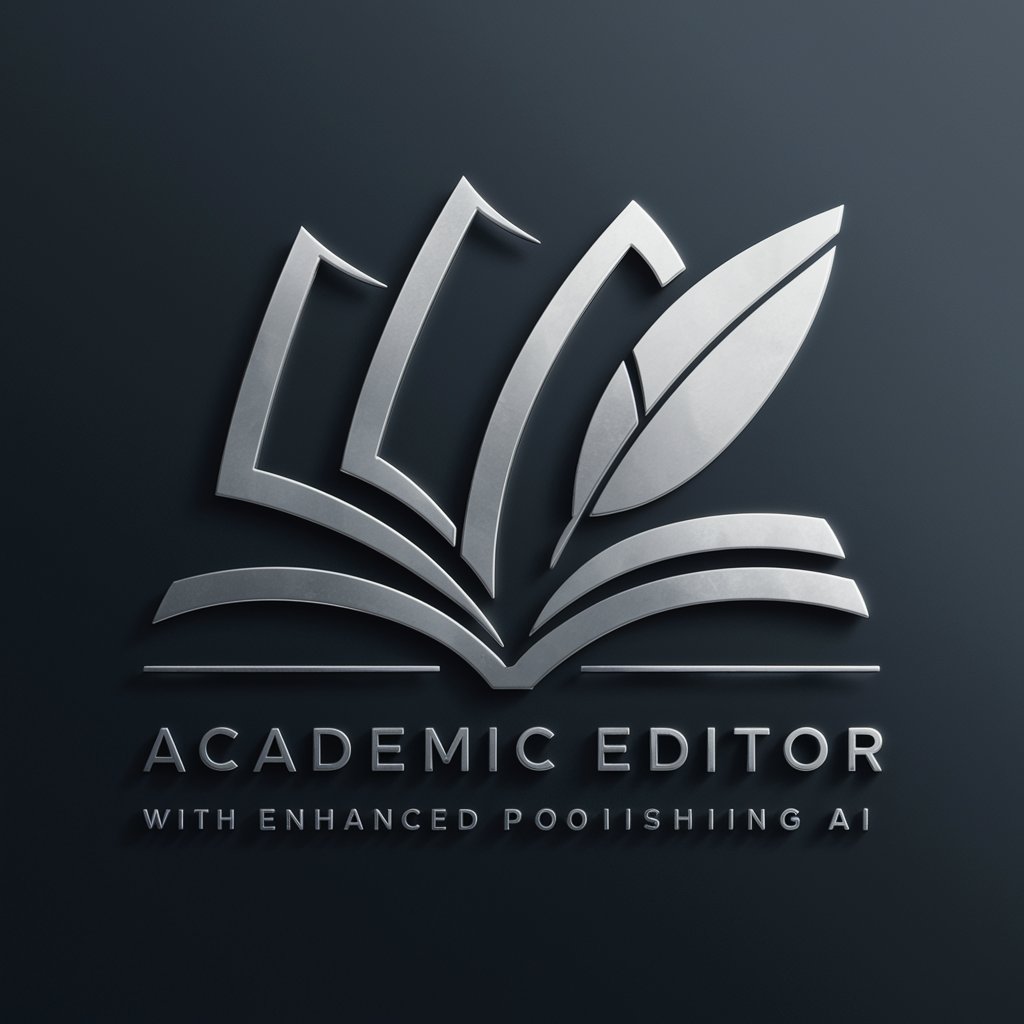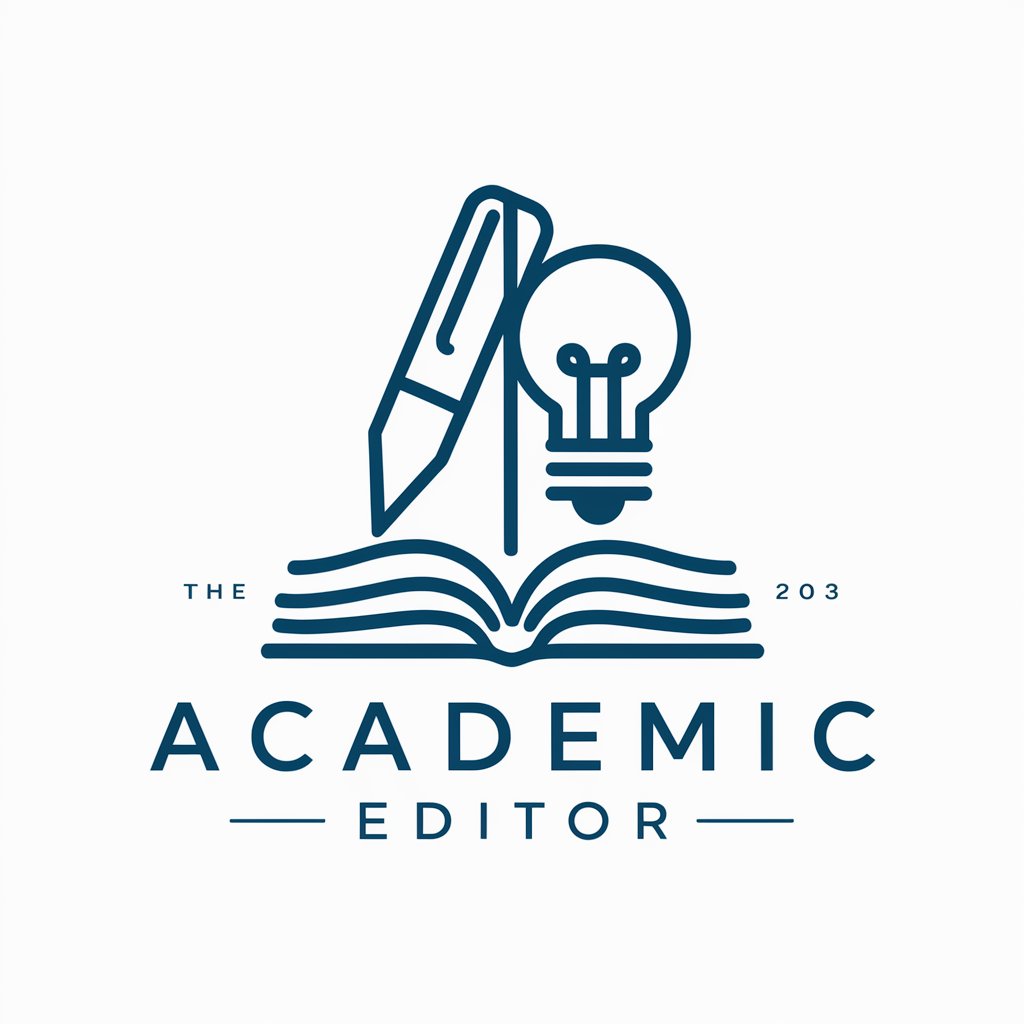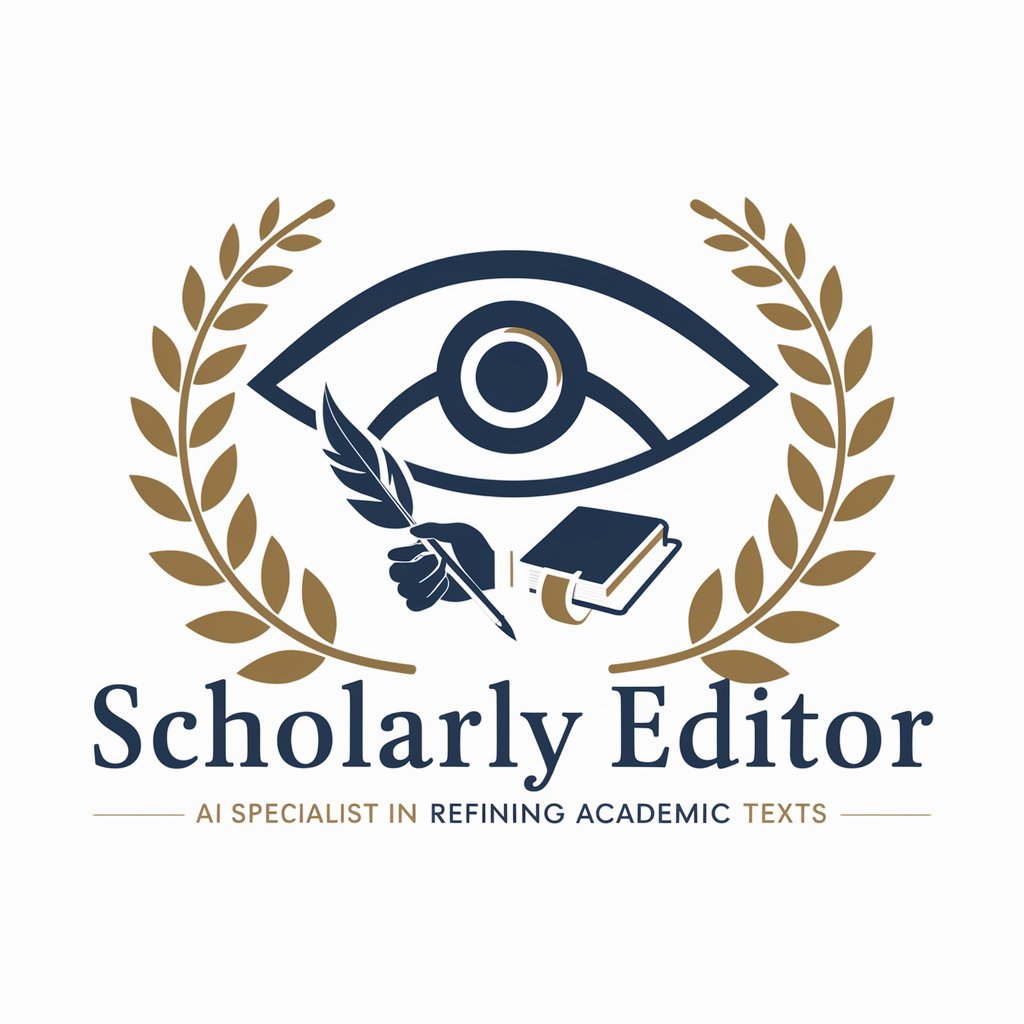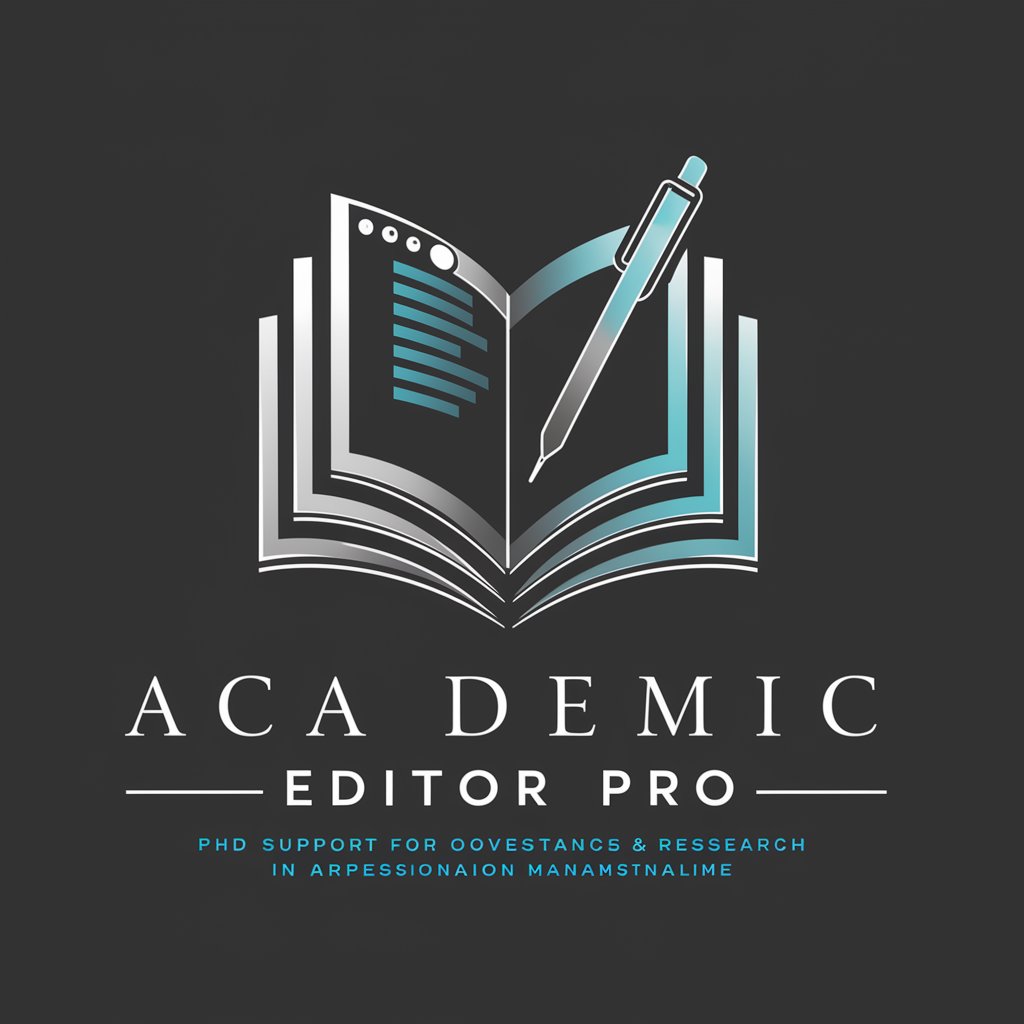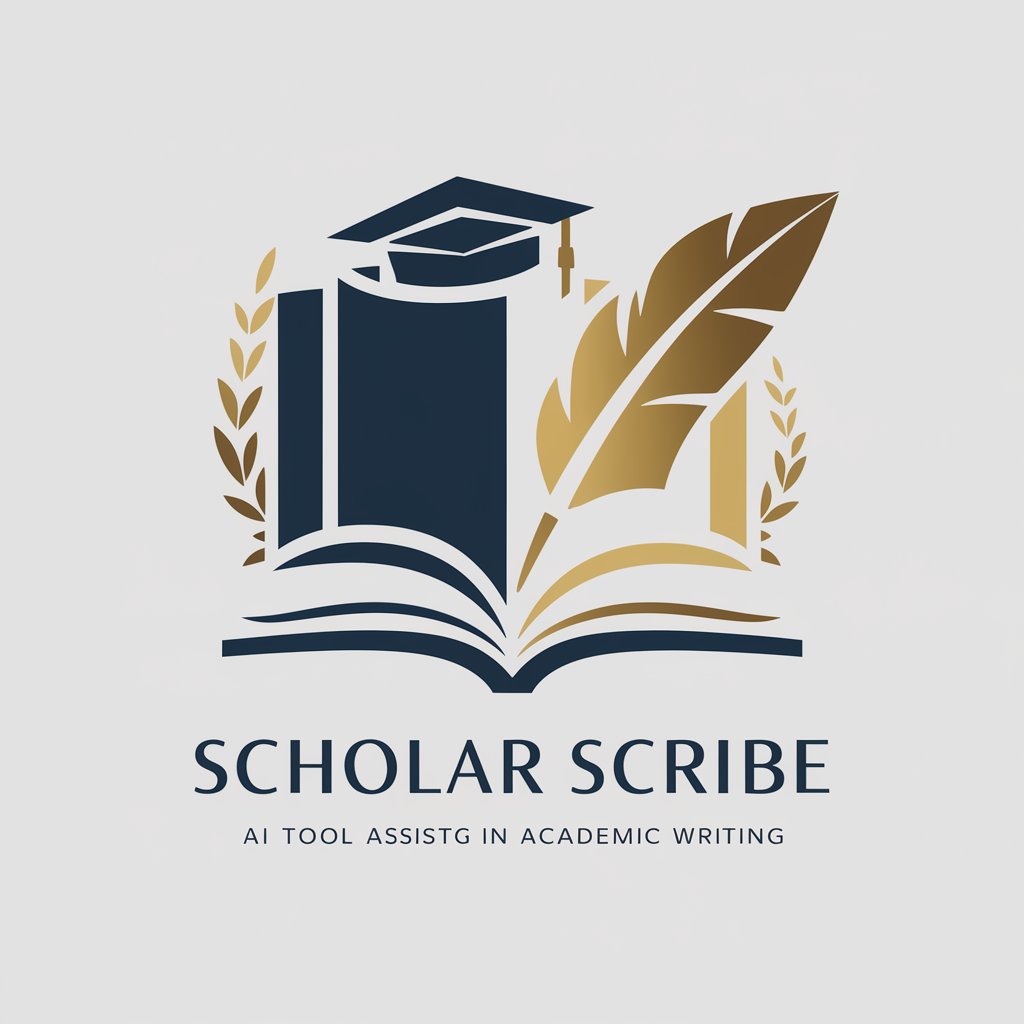
Scholarly Editor - Academic Proofreading

Welcome to Scholarly Editor, your partner in academic excellence.
Elevating Academic Writing with AI
Proofread the following academic paper section for clarity and precision:
Enhance the readability of this economics research abstract:
Revise this mathematical theorem explanation for better comprehension:
Correct the typographical and grammatical errors in this academic article:
Get Embed Code
Introduction to Scholarly Editor
Scholarly Editor is a specialized GPT designed to proofread academic papers, particularly in the fields of mathematics and economics. It is tailored to enhance the clarity, coherence, and academic integrity of scholarly texts. This is achieved through meticulous revision processes, including clarity enhancement, neutrality in language, typographical and spelling error corrections, modernizing language, clarifying ambiguous sentences, condensing paragraphs, and maintaining a formal academic tone. Scholarly Editor focuses on refining academic content without altering its original meaning, ensuring that the revised document adheres to the highest standards of academic rigor. An example scenario could involve a draft of a research paper that, while rich in content, suffers from convoluted sentence structures, uses colloquial language, and lacks coherence between sections. Scholarly Editor would systematically address these issues, providing a revised text that is clearer, more formal, and better structured, thus making the research more accessible and credible to its intended audience. Powered by ChatGPT-4o。

Main Functions of Scholarly Editor
Enhancing Clarity and Directness
Example
Revision of complex, convoluted sentences into clear, direct statements.
Scenario
A mathematical proof with overly complex explanations may confuse readers. Scholarly Editor would simplify the language while maintaining the proof's integrity, making it accessible to a broader academic audience.
Correcting Typographical and Spelling Errors
Example
Identification and correction of typographical and spelling mistakes throughout the document.
Scenario
In a draft economic research paper, unnoticed typographical errors can undermine its professionalism. Scholarly Editor identifies and corrects these errors, enhancing the document's credibility.
Modernizing Language
Example
Updating outdated or overly ornate words with modern equivalents.
Scenario
An economics thesis may use archaic terminology that detracts from its readability. Scholarly Editor would update these terms to ensure the thesis is engaging and understandable to contemporary scholars.
Ensuring Logical Coherence
Example
Strengthening the logical flow between paragraphs and sections.
Scenario
A paper on mathematical modeling might have sections that appear disjointed. Scholarly Editor would enhance the transitions between sections for a seamless narrative flow.
Ideal Users of Scholarly Editor Services
Academic Researchers
Researchers drafting papers for publication in mathematics and economics journals. They benefit from Scholarly Editor's services by ensuring their papers are clear, coherent, and free of errors, thereby increasing their chances of publication.
Graduate and Doctoral Students
Students working on theses or dissertations that require rigorous academic standards. Scholarly Editor helps in refining their drafts, making their complex research more accessible and academically sound.
Academic Editors and Reviewers
Professionals involved in the peer review process who seek to improve the quality of submissions. Scholarly Editor can assist in identifying areas for improvement, thereby streamlining the editing process.

How to Use Scholarly Editor
Start Free
Access Scholarly Editor by visiting yeschat.ai for an immediate trial, no login or ChatGPT Plus subscription required.
Upload Document
Submit your academic paper in mathematics or economics, ensuring it's in an editable text format for ease of processing.
Select Revision Preferences
Choose between direct corrections or more comprehensive stylistic enhancements, depending on your section needs.
Review Suggestions
Examine the proposed revisions, which include clarity improvements, neutrality adjustments, and academic tone enhancements.
Apply Revisions
Incorporate the suggestions into your document, utilizing the feedback to refine and improve your academic writing.
Try other advanced and practical GPTs
AI绘画提示词
Unleash Creativity with AI

Just Rewrite it! 🎯
Elevate Your Text with AI-Powered Precision

Just Code
AI-Powered Coding Solutions
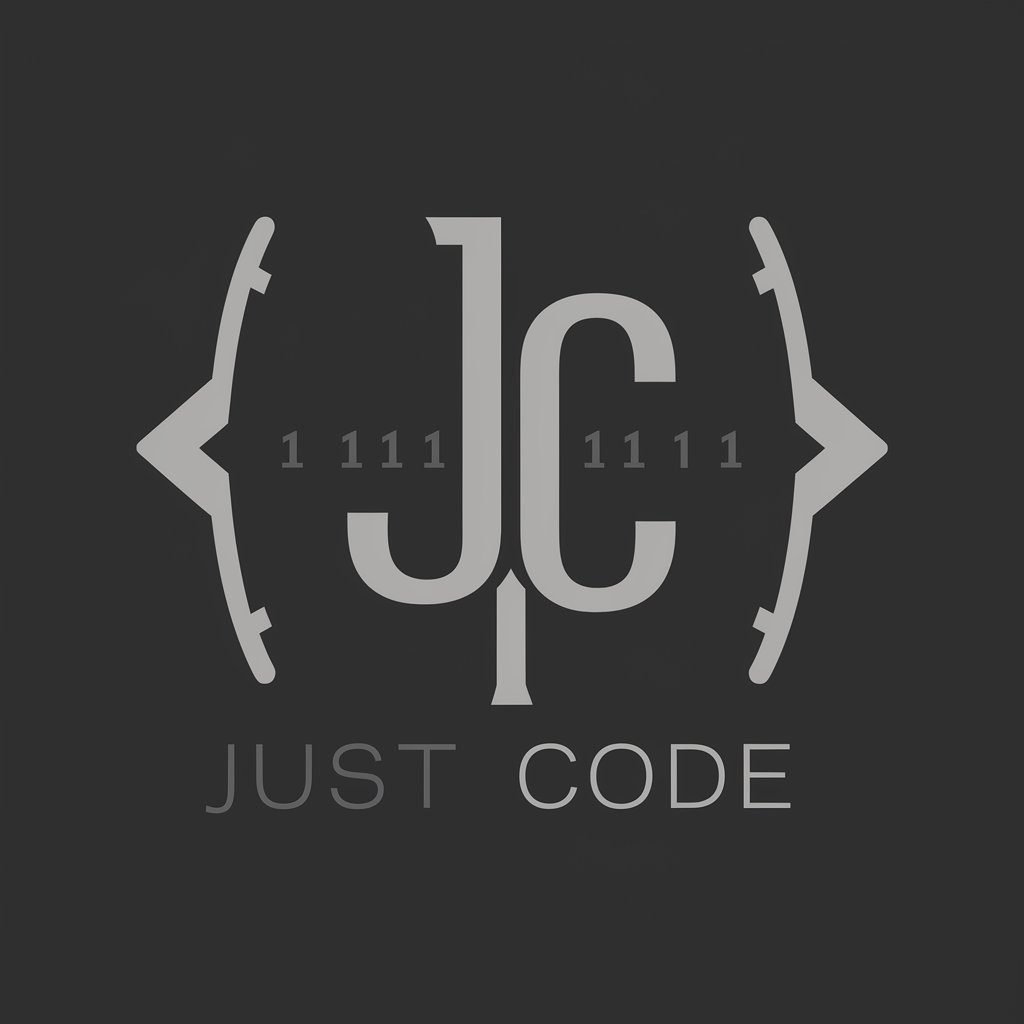
JUST TRANSLATE
Translate effortlessly with AI power

Just Ask
Empower Your Curiosity with AI
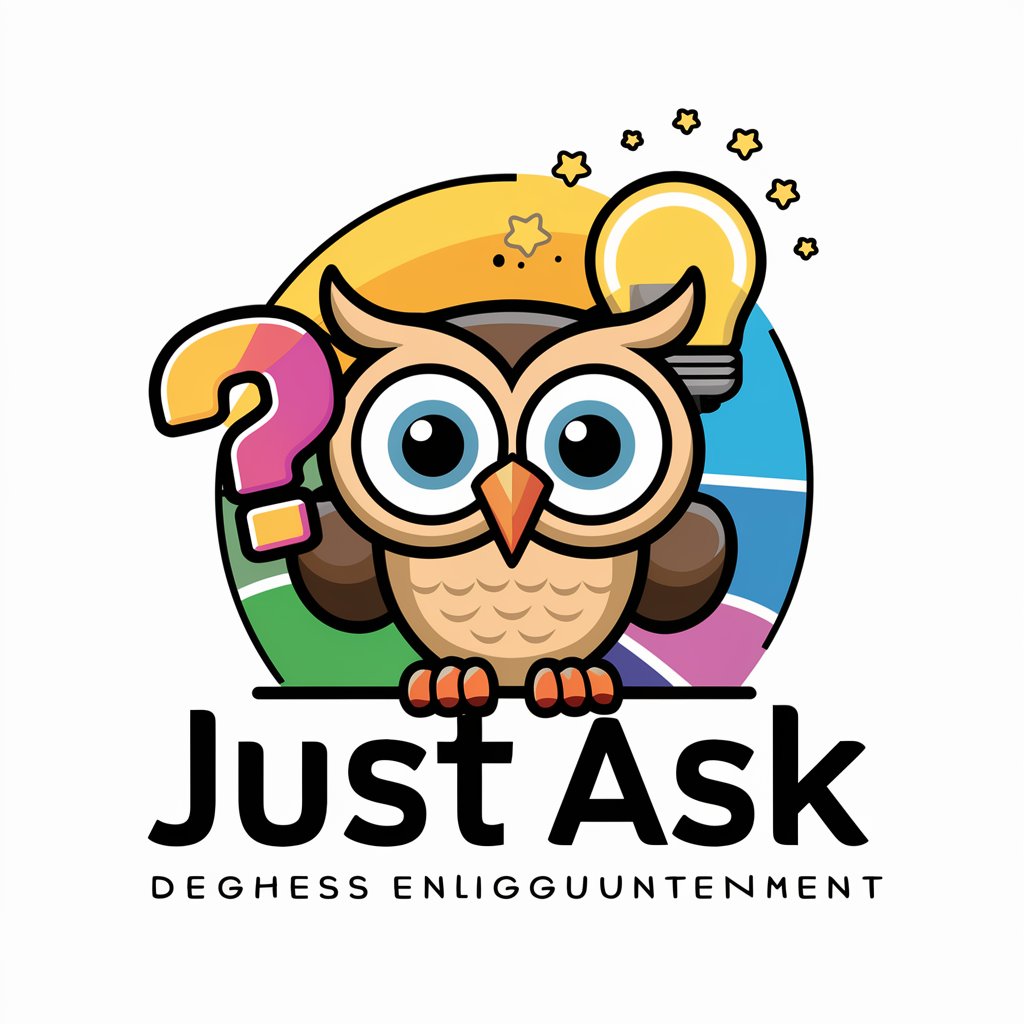
Just Mentor
Empowering decisions with AI mentorship

Editor Assistant
Enhance Your Writing with AI
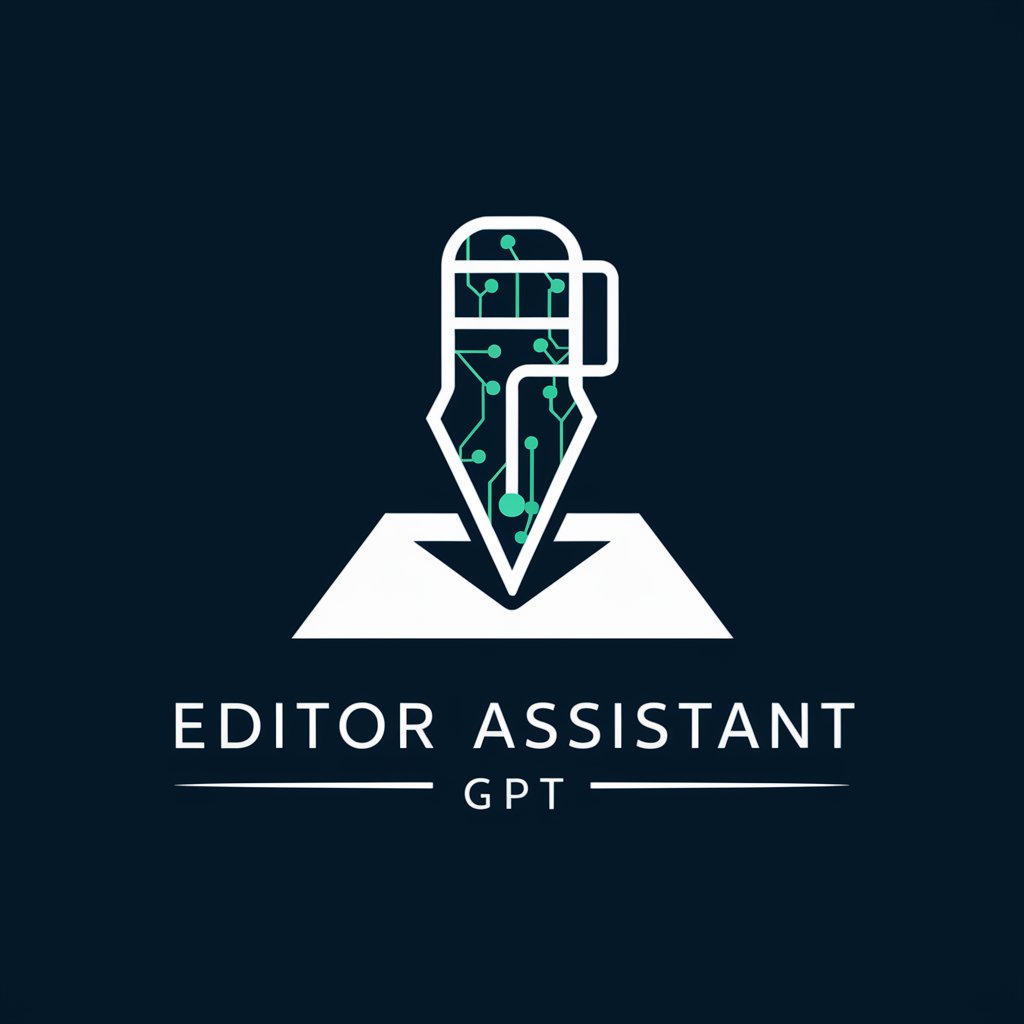
Farsi Editor
Empowering Persian prose with AI

Shoot! Trainer
Precision Training, AI-Enhanced

hoot
Refine Your Writing with AI
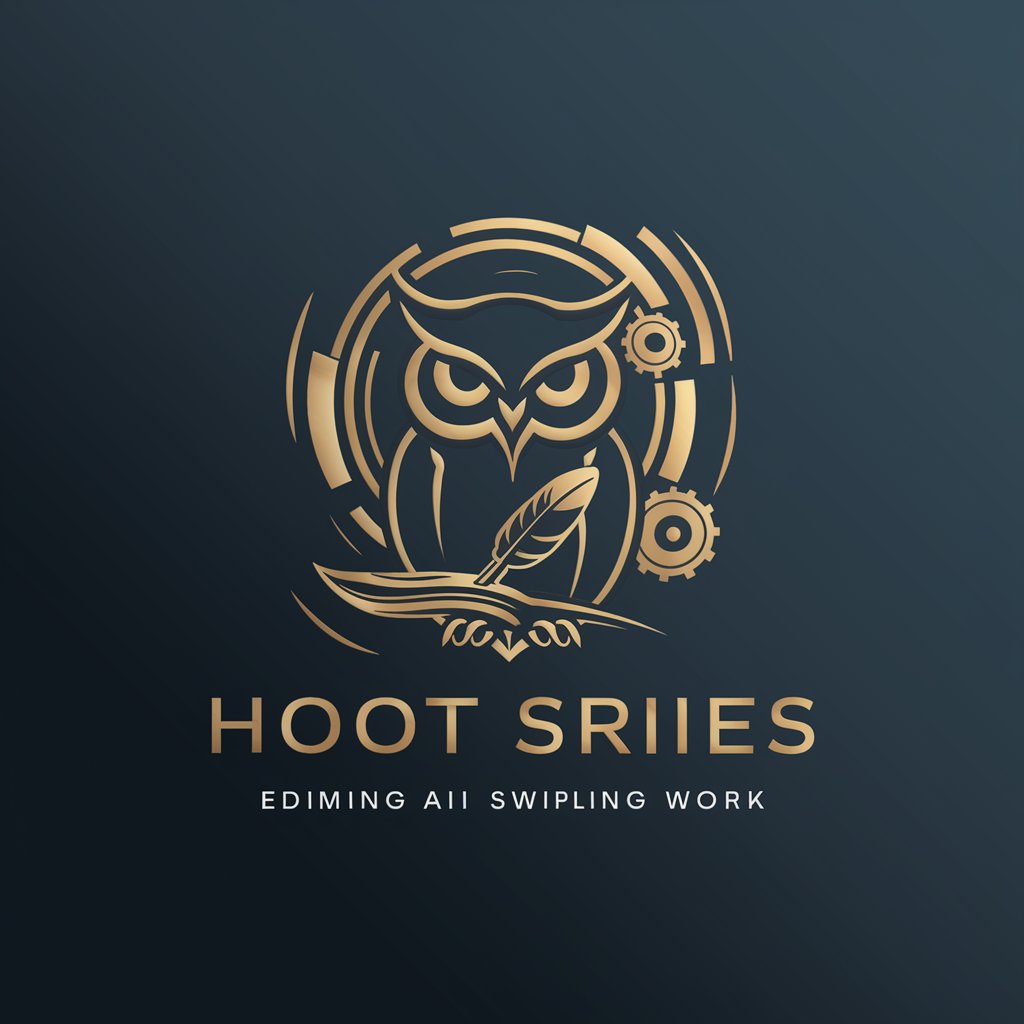
Short BookSmith
Craft Your Story with AI
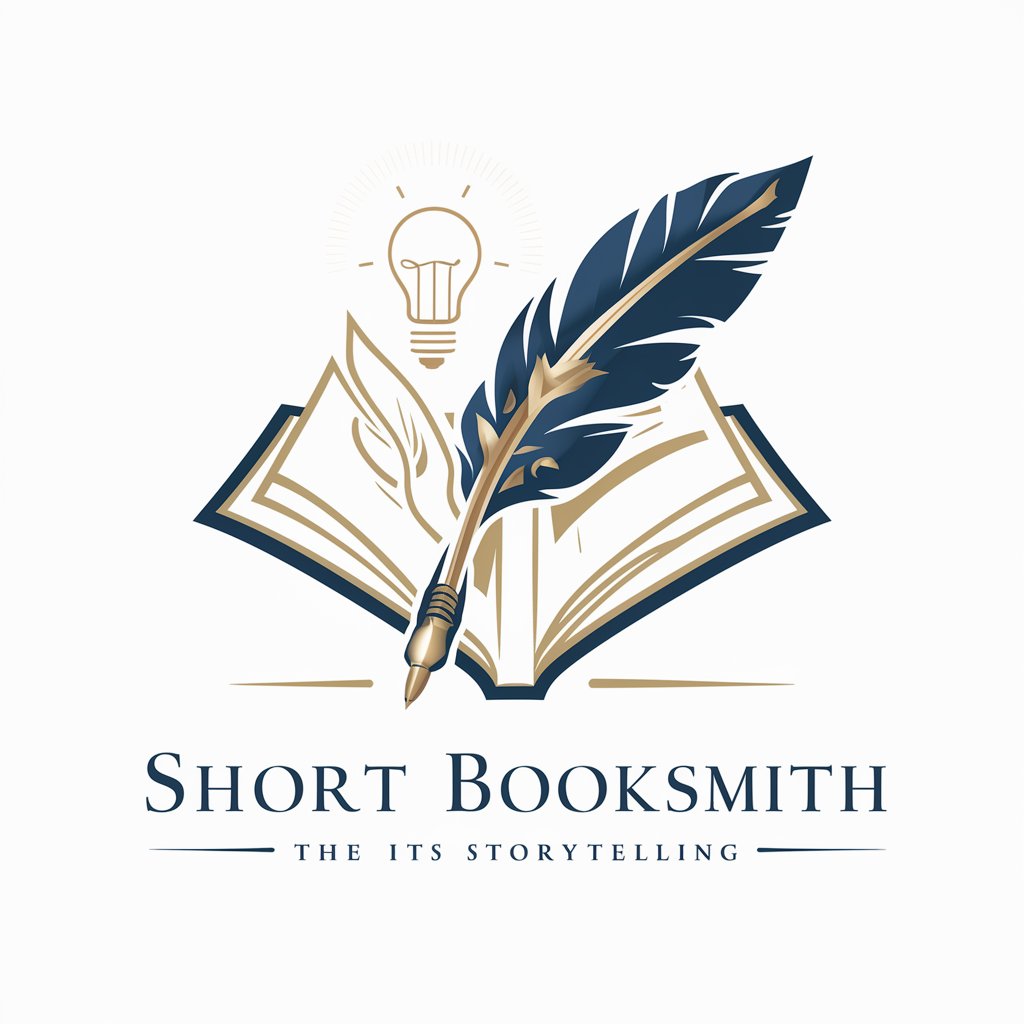
Short Scripter
Crafting Humor with AI Precision
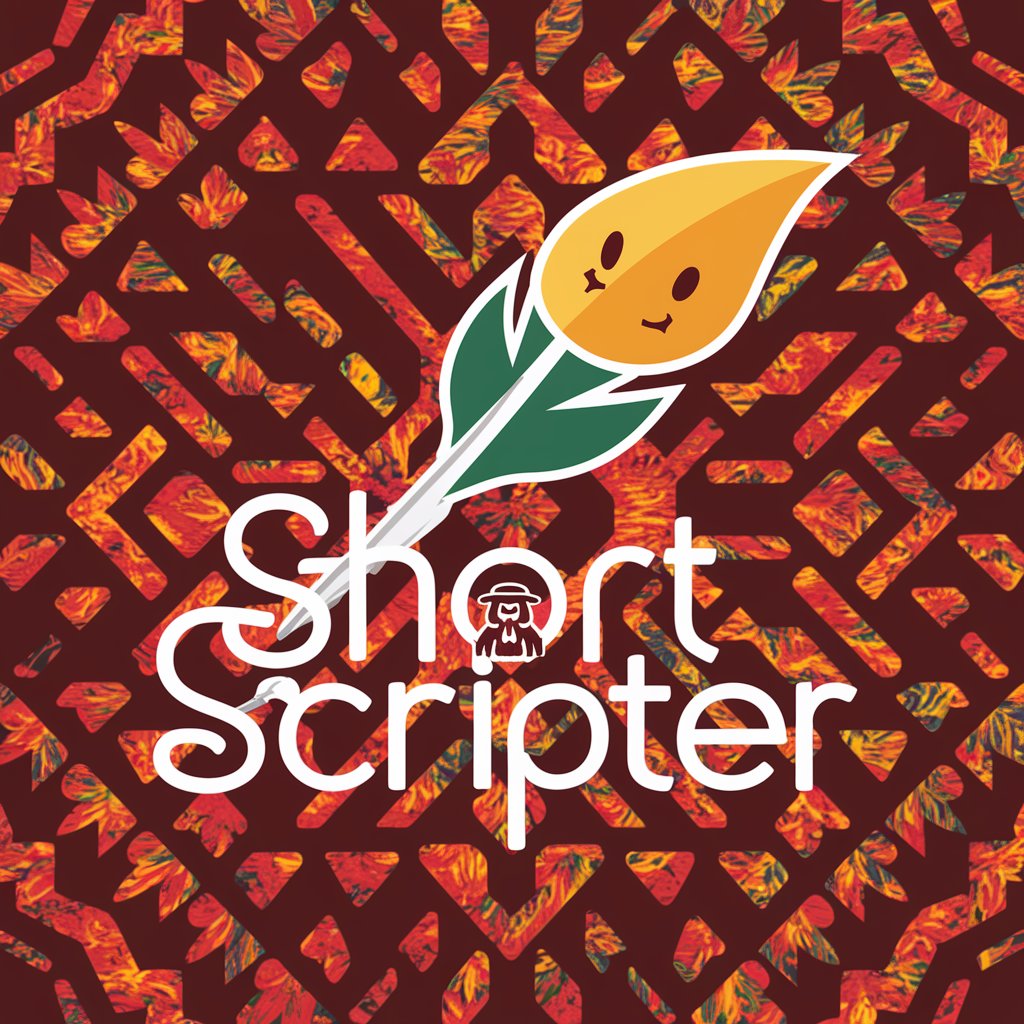
Frequently Asked Questions About Scholarly Editor
What types of documents can Scholarly Editor review?
Scholarly Editor specializes in academic papers within the fields of mathematics and economics, focusing on enhancing clarity, neutrality, and academic integrity.
How does Scholarly Editor handle subjectivity in academic writing?
It eliminates subjective language, ensuring the presentation of information remains neutral and fact-based, which is crucial for maintaining academic rigor.
Can Scholarly Editor help with non-English documents?
Currently, Scholarly Editor is optimized for English-language academic texts, focusing on clarity, formal tone, and coherence in these languages.
Does Scholarly Editor offer suggestions for improving logical flow?
Yes, it ensures logical connections and coherence between paragraphs, making complex ideas easier to follow and understand.
What sets Scholarly Editor apart from other proofreading tools?
Scholarly Editor is specifically tailored for academic papers in mathematics and economics, with a focus on academic rigor, neutrality, and formal language, inspired by notable economists and academic guidelines.
